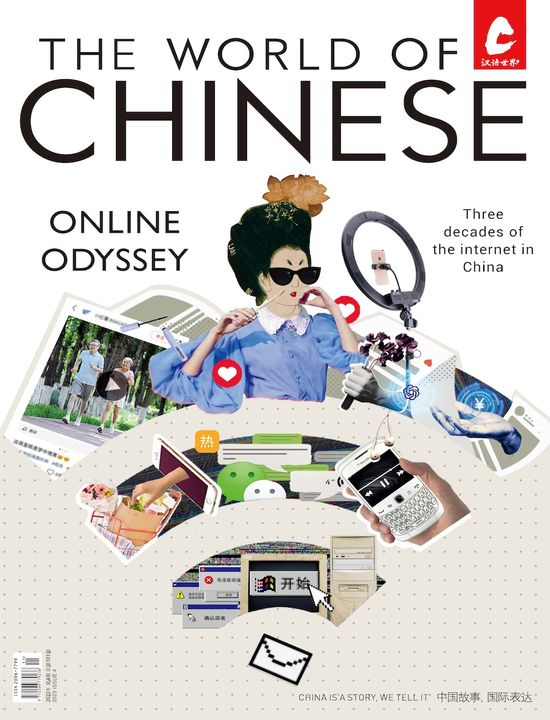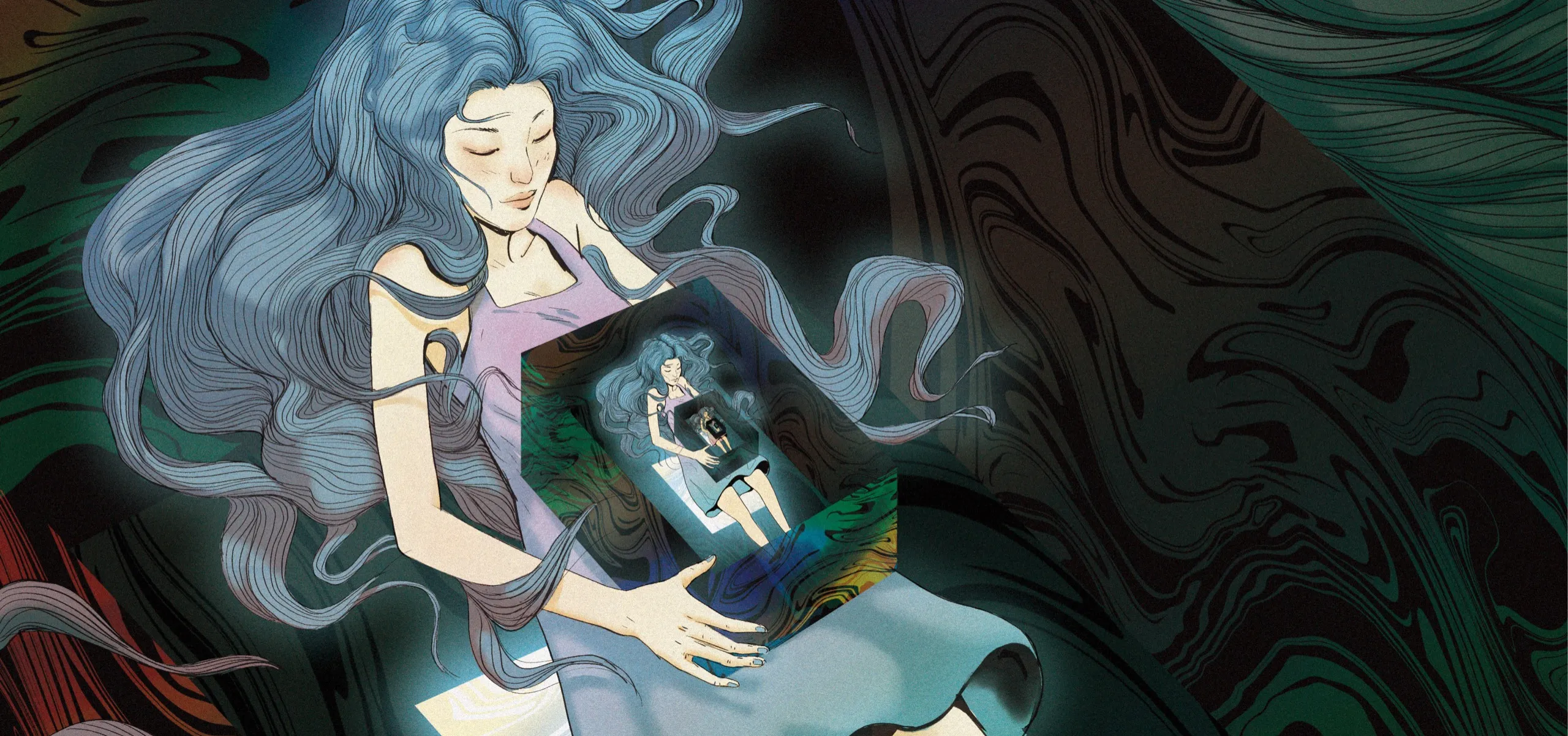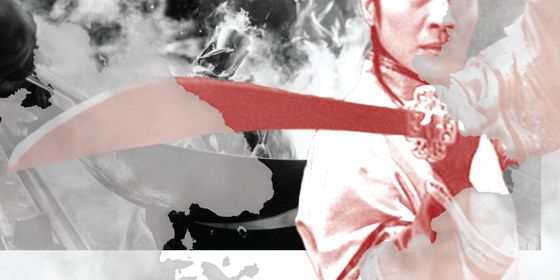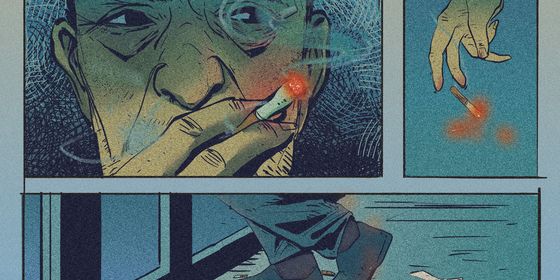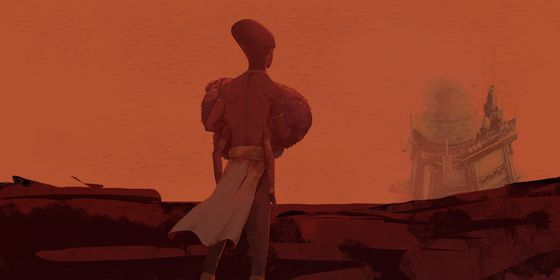Award-winning sci-fi author Chen Qiufan investigates how technology manipulates our consciousness in this short story
I won a raffle at a Korean hot pot restaurant.
I was on an unsuccessful blind date with a guy that some distant relatives hoped to fix me up with. There was nothing wrong with him, exactly. Just like me, he was trying to grind his way upward in the world of finance. He took care to dress the part. As soon as he opened his mouth, I could hear something familiar in the way he spoke. He had the habit of taking any subject and trying to break it down into figures and formulas that he could then split into A, B, C, D, and enter into spreadsheets. His face floated in the steam between us. He was using the same face on me that he must have used for sucking up to his boss or trying to sell clients on some new scheme. I plucked a quivering rice cake out of the red-hot broth. I mumbled uh-huhs and oh yeahs back to whatever he said. I hadn’t expected anything less out of the date.
“I don’t get it,” he said. “You’ve got everything a man is looking for. If you’re too picky, you’re going to miss the window of opportunity and won’t be able to cash in any options.”
I almost choked on the rice cake. I wasn’t angry. I wasn’t in a hurry to offer an explanation. But the particular terminology struck me as funny. It made me see him in a new light.
“I’m just...not interested, I guess.”
“Well, I already noticed that you’re not interested in me,” he said. “I’ll pick up the check. Let’s leave as friends, at least. If you pick up a decent client, I’ll be happy to give you a commission for steering them my way.” He raised his hand to call for the check.
It was like he had said earlier in the meal: Mature people don’t waste time trying to overturn a foregone conclusion. I wasn’t willing to explain to him that it wasn’t him in particular that I wasn’t interested in, but rather the entire enterprise. But then, what was I actually interested in?
When the waiter came by with the check, he was holding a cardboard box with a fancy wrapper on it. He said that they were doing a raffle for the anniversary of the restaurant. If your bill was over three hundred, you could draw a slip. The grand prize was a trip for two to Sanya.
Mr. Finance gestured for me to draw. I reached into the box and ran my fingers through the tiny slips of paper, trying to distribute them as evenly as possible. Mr. Finance rolled his eyes, probably wondering why I was putting so much thought into a dumb raffle.
I felt something slippery brush past my fingers and I jerked my hand out of the box. There was a black raffle slip stuck to my palm.
The waiter congratulated me. It was one of the big prizes, he said. He took down my contact information and said that the sponsor would get in touch with me in a couple of days.
I saw a hint of regret flash across the face of Mr. Finance. That convinced me to keep the prize. I had been thinking of letting him have it, just to be polite.
Three days later, I received an email from an unfamiliar address. The subject line said: “Congratulations on your Dark Room Experience.” I figured they must have tried calling first, but my Smart Assistant had blocked the number. AI was already better at managing unwanted phone calls than I was.
The email had a black background with white text. The advertising copy was heavy on tautologies and lame slogans. There was a registration link after that. I started to suspect it was a phishing scam.
“The Dark Room Experience will deliver surprises most unexpectable!” the email promised.
I clicked on the link. The location was on Mount Meru, about an hour and a half away by car. It wasn’t that far. It sounded like it was one of those escape rooms that had been popular for a while. I wasn’t much of a risk-taker. I’ve often wondered whether taking a job in risk management had led me to shun uncertainty—or had my fear of risk led me to the job? I hoped that it was just a byproduct of the job. I sometimes sifted through my childhood memories, trying to prove that I wasn’t always so cautious. I wanted to believe it was my job that sapped the daring out of me.
But I couldn’t recall any evidence of my early bravery.
I searched for reviews online and couldn’t find anything. Maybe their marketing team liked to maintain a sense of secrecy and exclusivity. I closed the website and opened it again a few more times. I thought back to the slippery sensation in the raffle box. I scanned the website a final time, then finally hit “Send” on the reservation. I wasn’t sure why I breathed a sigh of relief. It was like a blind date, when both people realize the other person is not interested, but they continue with the act.
I thought excitement would keep me up all night, but it didn’t. It seemed like my internal risk management system had analyzed the information and concluded that I was safe. I was actually a bit disappointed.
The taxi dropped me off at the foot of Mount Meru. That was as far as it could go. I had to walk the rest of the way.
It was called Mount Meru, but it was more like a hill. It must have been some kind of play on the Buddhist metaphor about the legendary mountain that could fit into a mustard seed. The hill was not very impressive, but its forested slopes were a beautiful deep green. The winding path to the top was peaceful. As I started climbing the stone steps, I started to sweat. I had to stop to catch my breath. It was a strange place to run a business. It was as if they were trying to dissuade customers. I wondered if they got any repeat visitors.
I finally stumbled upon a small building set behind a grove of bamboo. Its white walls were decorated with blue tiles. Round windows contrasted with the sharp lines of the doorway. It was pretty cool. I rang the doorbell and waited. The door swung open without a sound. As I stepped through, I felt a chill run down my spine. I felt like someone was watching me. I looked behind me, but all I could see was the bamboo swaying in the wind.
I was greeted in soft tones by a tidy young couple.
The guy introduced himself as Xiao Guan. He confirmed a few details on the doctor’s note I had submitted, then asked a couple more questions related to family medical history.
The girl’s name was Xiao Ye. She led me into a side room, where a pair of stretchy gym clothes was laid out for me. She reminded me again of the precautions that I had to take.
“It sounds dangerous,” I said.
Xiao Ye smiled. “Physically,” she said, “it’s safer than riding an elevator.”
I noted her addition of “physically.” It seemed unusual to me. “How long does it take?” I asked.
“It’s up to you,” Xiao Ye said. “Everyone approaches it differently. You have the entire day, though. Today, the dark room is yours.”
“So, what’s in there, exactly?” I asked. The risk management part of my brain was still working.
“Oh,” Xiao Ye said, pausing for a moment, “have you ever heard of sensory deprivation?”
“Yeah,” I said. “They have it at some spas, right? Supposedly you get into a state of deep relaxation? I’ve never tried it, myself.”
The Dark Room Problem is a story from our issue, “State of The Art.” To read the entire issue, become a subscriber and receive the full magazine. Alternatively, you can purchase the digital version from the App Store.
